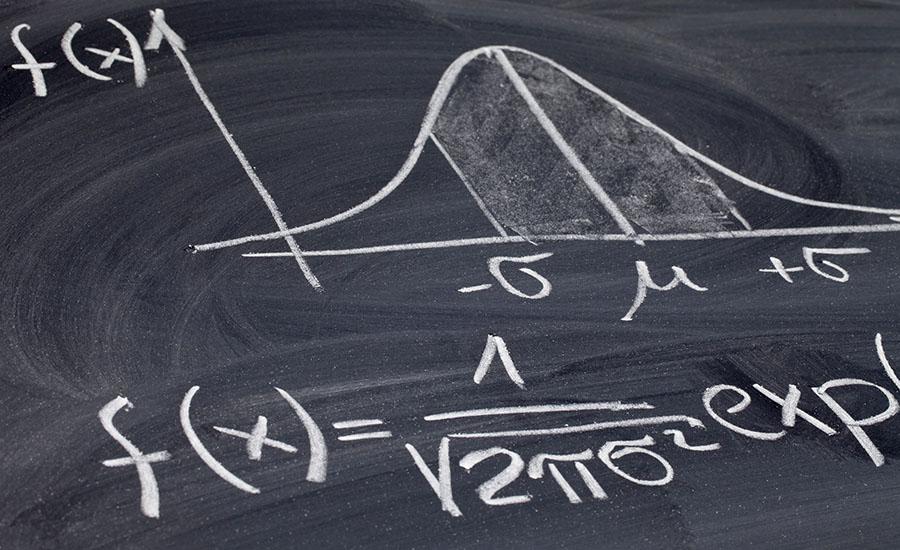Grades:
5th Grade
Students will use the engineering design process to design, build, and test three different paper airplane designs. The goal will be to create one that can fly the fastest, one that can fly the
Grades:
5th Grade
In this lesson, students comprehend basic physics concepts that are applicable to constructing a device that protects an egg from breaking when dropped. Team building and self-reflection are key
Grades:
3rd Grade
SUMMARY: This lesson challenges 3rd grade students to apply their knowledge of the physics of light by having them design, create, and test an obstacle course that their beam of light must navigate
Grades:
Kindergarten
This is a hands-on lesson about shapes! After listening to Jack and the Beanstalk, students will look at a collage of castles and try to identify shapes that they see in the construction of the
Grades:
4th Grade
In this hands-on lesson, students will construct a model of a volcano and produce lava flows. They will also observe, draw, record, and interpret the history and stratification of an unknown volcano
Grades:
6th Grade
Can one organism turn an ecosystem upside down? In this engaging lesson, students use an interactive site (hhmi biointeractive) to understand and answer how a species becomes invasive, analyze
Grades:
6th Grade, 7th Grade, 8th Grade
This is an 8-lesson unit that is designed to be used together to learn about the health and diversity of your local watershed by placing leaf packs into a water source (natural or man-made ponds
Grades:
9th Grade, 10th Grade, 11th Grade, 12th Grade
Students will develop a deep understanding about environmental sustainability while creating an implementation plan for a UN sustainability goal. This lesson focuses on science and technology, with
Grades:
9th Grade, 10th Grade
In this hands-on lesson, students work with a partner to construct a functioning, usable sprinkler. Students use basic principles of engineering to create this prototype and test it out for adequate
Grades:
6th Grade, 7th Grade, 8th Grade
This is an 8-lesson unit that is designed to be used together to learn about the health and diversity of your local watershed by placing leaf packs into a water source (natural or man-made ponds
Grades:
3rd Grade, 4th Grade, 5th Grade
Students will be learning and practicing the concepts of reflection and refraction through this engaging STEM activity.
Grades:
6th Grade, 7th Grade, 8th Grade
This hands-on science lesson will help students get a more accurate view of the solar system by making a scale model with play dough, balloons, rulers, and tape!
Grades:
4th Grade
Students will be able to design a method of protection for the Earth’s land that would withstand the impact of rainfall on soil and prevent erosion. Students will discover that the soil with
Grades:
6th Grade, 7th Grade, 8th Grade
This is an 8-lesson unit that is designed to be used together to learn about the health and diversity of your local watershed by placing leaf packs into a water source (natural or man-made ponds
Grades:
3rd Grade
Students will tend to their garden boxes and observe the plants that are starting to grow. Students will take measurements and start a graph on growth throughout the growing cycle of their garden
Grades:
6th Grade
Students will be thinking like engineers as they design their marble roller coasters using the principles of kinetic and potential energy.
Grades:
6th Grade, 7th Grade, 8th Grade
This is an 8-lesson unit that is designed to be used together to learn about the health and diversity of your local watershed by placing leaf packs into a water source (natural or man-made ponds
Grades:
11th Grade, 12th Grade
This will be a 1 class period laboratory. It should take about 45-60 minutes. Students will be making a wet-mount slide of pollen that they collected or that was provided. They can look at prepared
Grades:
3rd Grade
In this lesson, students will research a variety of habitats. They will then use their research to document what they learned using technology. This information will be used in future lessons to build
Grades:
5th Grade
In this creative lesson, students will create a simple machine to retrieve objects through a makeshift storm drain. There is a potential literacy integration and a focus on the engineering design
Grades:
3rd Grade
In this lesson, students will create a unique animal and then describe & draw it in a specific habitat. The students will determine what adaptations the animal needs to survive in the habitat and
Grades:
5th Grade
In this STEM lesson, 5th grade students will apply what they have learned about the affect gravity and friction have on an object’s mobility by engineering simple machines to change the ending of the
Grades:
9th Grade, 10th Grade
In this lesson plan, students make use of their knowledge about homoestasis, osmosis, and types of solutions to design their own science investigation that will enable them to prove and answer: Why it
Grades:
6th Grade, 7th Grade, 8th Grade
In this meaningful lesson, students use creativity, imagination, and engineering skills to create a water conservation model that can be scaled up and used in a garden. Students are encouraged to
Featured Lesson Plans
Check out these notable lesson plans.

Featured
Arizona Animal Crossing
Grades:
6th Grade
In this lesson, students use the engineering process to solve a real-world problem along the I-10 in Arizona. Students analyze data about roadkill along a particular stretch on the I-10 just outside

Grades:
4th Grade
Go through different STEM, reading, and writing activities with Roz and her friends in The Wild Robot. Students will problem solve, participate in discussions, and learn about artificial intelligence

Grades:
9th Grade, 10th Grade, 11th Grade, 12th Grade
This lesson uses a Modeling Instruction approach to developing the graphical and mathematical relationships for Circular Motion for students in Grades 9-12. Students design an experiment, collect data
